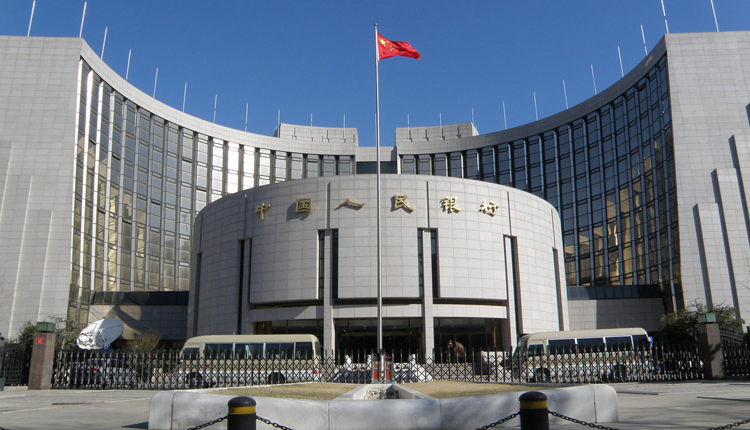A U.S. judge has found three major Chinese banks in contempt for refusing to comply with subpoenas in a probe into North Korean sanctions violations, the Washington Post reported. One of these banks could lose access to the U.S. financial system.
The banks were not identified by the judge, but details in the ruling align with a 2017 civil forfeiture action against Bank of Communications, China Merchants Bank and Shanghai Pudong Development Bank, the newspaper reported.
The U.S. Justice Department at the time accused the banks of working with a Hong Kong company, which allegedly laundered more than $100 million for North Korea’s sanctioned Foreign Trade Bank, the paper said.
The Washington Post report comes as the United States and China have waged a year-long trade war marked by tit-for-tat tariffs on each other’s goods.
The newspaper said the bank at risk of losing access to U.S. dollars appeared to be Shanghai Pudong Development Bank, whose ownership structure, limited U.S. presence and alleged conduct with other banks matched with the details disclosed in the court rulings.
Shanghai Pudong Development Bank doesn’t have U.S. branch operations but maintains accounts in that country to handle dollar transactions, the report said, adding the subpoena battle will go before a federal appeals court in Washington on July 12.
“The ruling means that Attorney General William P. Barr or Treasury Secretary Steven Mnuchin can terminate the bank’s U.S. account and ability to process U.S. dollar transactions,” the Post said.
Shanghai Pudong Development Bank, asked about the report that it could lose access to the U.S. financial system, said in a statement that it will strictly abide by the relevant laws and regulations.
National joint-stock lender China Merchants Bank said on Tuesday it complies with related United Nations resolutions and Chinese laws, and is not involved in any investigations related to possible violations of sanctions.
Bank of Communications, China’s fifth-largest bank, said the case involved U.S. courts seeking to obtain customer information that is stored outside the United States from Chinese commercial banks.
It said the bank carries out business activities in compliance with laws and regulations and currently it was not under any investigation involving suspected sanctions violations.
All three Chinese banks are listed on the Shanghai Stock Exchange. On Tuesday, shares of China Merchants Bank closed down 4.82%, after being off 8.5% earlier in the day, while Shanghai Pudong Development Bank declined 3.08% and Bank of Communications dropped 3.02%.
FRAMEWORK OF LAW
In May, a U.S. district judge ordered three Chinese banks to comply with U.S. investigators’ demands that they hand over records connected to the alleged movement of tens of millions of dollars in violation of international sanctions on North Korea.
The publicly released court document did not name the banks, the Hong Kong company, or the North Korean entity at that time.
The subpoenas were issued in December 2017 as part of a U.S. investigation into violations of sanctions targeting North Korea’s nuclear weapons program, including money laundering and contravention of the U.S. Bank Secrecy Act.
Geng Shuang, a spokesman at the Chinese foreign ministry, said “We ask our companies and overseas branches to abide by local regulations and laws and operate within the framework of law, and cooperate with the local judicial and law enforcement bodies.”
“At the same time, we are against U.S. so-called long arm jurisdiction on Chinese companies. We hope the U.S. will step up bilateral cooperation on finance with other countries,” Geng said at a daily briefing in Beijing.
The People’s Bank of China (PBOC) did not immediately respond to a faxed request for comment.
Currently, there’s no conclusive information that Chinese banks will be sanctioned, PBOC publication Financial News reported on Tuesday, citing an unnamed industry veteran.
Chinese banks will not lose their U.S. dollar clearance qualifications, and the market should not over-interpret this, the same person was quoted as saying.
China is North Korea’s neighbor and main trading partner but has committed to enforcing international sanctions aimed at pressing Pyongyang to give up its nuclear weapons.
The Group of 20 summit in Japan this weekend will be the first meeting between U.S. President Donald Trump and Chinese President Xi Jinping since trade talks between the two countries broke off in May. They will discuss issues such as tariffs, subsidies, technology, intellectual property and cyber security, among others.
The U.S. government has put some Chinese firms including telecoms equipment maker Huawei Technologies Co Ltd on a trade blacklist while China is also drawing up its own “Unreliable Entities List” of foreign firms, groups and individuals.
Source: Reuters


